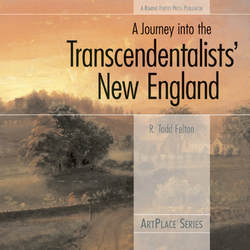Читать книгу A Journey Into the Transcendentalists' New England - R. Todd Felton - Страница 28
На сайте Литреса книга снята с продажи.
Six Degrees of Separation
ОглавлениеIn the relatively small world of New England’s intelligentsia, coincidences are bound to occur, and the Transcendentalists are no exception. Start with Emerson: His grandfather’s house was home to two Transcendentalists (Emerson and Hawthorne) and ended up in the possession of the Reverend Samuel Ripley. A cousin of both Samuel Ripley and Emerson, George Ripley, founded Brook Farm and the Transcendental Club, and assisted Margaret Fuller in editing the Dial. The Dial was published by Elizabeth Palmer Peabody, whose younger sister, Sophia, married Hawthorne after he left Brook Farm, where he had lived with George Ripley, who then helped him rent the Old Manse, which had been in Emerson’s family for several generations. And Elizabeth Peabody was Bronson Alcott’s assistant at the Temple School in Boston, where Margaret Fuller also taught.
I had ... a Foreign Library of new French and German books, and then I came into contact with the world as never before. The Ripleys were starting Brook Farm, and they were friends of ours. Theodore Parker was beginning his career, and all these things were discussed in my bookstore by Boston lawyers and Cambridge professors. Those were very living years for me.
Building on Elizabeth Peabody’s success offering “conversations” for profit to a women-only audience, Margaret Fuller convened a series of discussion groups tackling serious philosophical topics during the winters from 1839 to 1844. The groups would meet from noon to 2 p.m. on Wednesday afternoons, once a week for thirteen weeks. The format usually included assigned reading and a discussion moderated by Fuller.
In an era when there were few educational opportunities for women, this was an unusual chance for women to exercise their intellect. Not surprisingly, the conversations attracted many of the finest female minds in the area. The first series focused on the differences between men’s and women’s educational opportunities, and later series covered mythology and the arts.
Brilliant and dedicated, Margaret Fuller was one of Transcendentalism’s best conversationalists.
